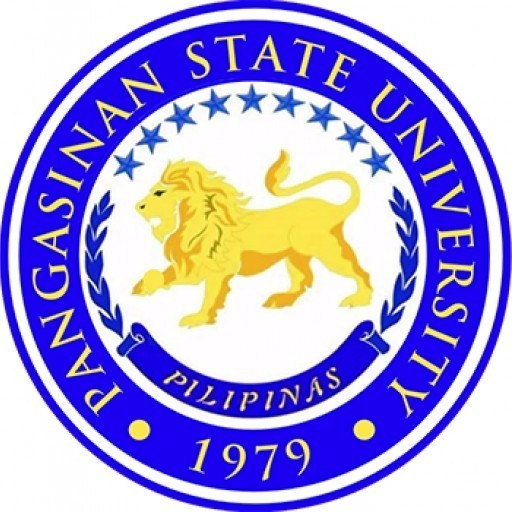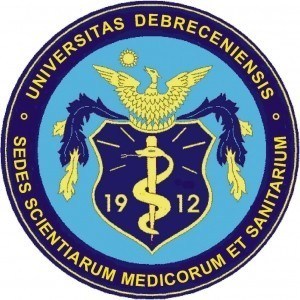The Bachelor of Public Health and Health Management at UNSW Sydney is a comprehensive undergraduate program designed to equip students with the knowledge and skills necessary to address the complex health issues facing modern societies. This degree offers an interdisciplinary approach, combining principles from health sciences, policy, management, and research to prepare graduates for impactful careers in public health sectors. Throughout the course, students explore topics such as epidemiology, health promotion, healthcare systems, health policy development, and management practices, providing a solid foundation for working effectively in diverse healthcare environments. The program emphasizes the importance of evidence-based decision-making and critical thinking, enabling students to analyze health data, develop strategic solutions, and implement health programs that improve community wellbeing. Students will engage in practical learning experiences, including internships and project work, to apply theoretical knowledge in real-world contexts. The curriculum is designed with flexibility, allowing students to tailor their studies according to their interests, whether in disease prevention, health policy, or healthcare administration. Graduates of this program are well-equipped to pursue careers in public health agencies, healthcare organizations, research institutions, or to continue their education through postgraduate study. The program also aims to develop leadership qualities and a strong ethical framework, ensuring students are prepared to contribute positively to public health initiatives and policy development. With a focus on contemporary global health challenges, the Bachelor of Public Health and Health Management prepares students to be proactive, innovative, and compassionate professionals dedicated to improving health outcomes across populations.
The Master of Public Health and Health Management at UNSW Sydney offers a comprehensive education designed to prepare students for leadership roles in the health sector. This program provides a multidisciplinary curriculum that combines core public health principles with specialized knowledge in health management, policy development, and healthcare systems. Students will explore a wide range of topics including epidemiology, biostatistics, health promotion, health economics, healthcare quality assurance, and health policy analysis. The program emphasizes practical skills through case studies, project work, and opportunities for industry engagement, enabling graduates to tackle complex health issues both locally and globally.
Designed for professionals seeking to advance their careers in public health administration, this program equips students with the analytical tools needed to assess health interventions, manage healthcare organizations efficiently, and develop effective health policies. The curriculum integrates theoretical frameworks with real-world applications, ensuring students can translate academic knowledge into practical solutions. Students will learn about the social determinants of health, global health challenges, and strategies for implementing sustainable health programs. The program also emphasizes leadership, communication, and ethical decision-making skills essential for managing diverse health teams and improving health outcomes.
The Master of Public Health and Health Management at UNSW Sydney offers flexibility with part-time and full-time study options, enabling students to balance their education with professional commitments. The program’s close ties to industry and government agencies provide valuable networking opportunities, internships, and collaborative projects. Graduates will be well-positioned for careers in public health policy, health services administration, health consultancy, and international health organizations. Through its rigorous coursework and practical experiences, this program aims to develop the next generation of health leaders committed to improving health systems and promoting health equity across populations.
- Applicants are required to possess : an under graduate degree in an area related to public health or health direction (see list below)
- And 2 years fulltime professional or volunteer experience. This could also consist of equivalent professional experience acquired as part of a level of more years interval (e.g. MBBS, MD)
- or an under graduate degree along with an honours or post graduate level in a field related to public health or health direction (see list below)
- [Examples include, but aren't restricted to, medicine, nursing, allied health, health sciences, biomedical sciences, dentistry, social work, sociology, behavioural and social sciences, social work, psychology, and marketing, human servicesand emergency services, environmental health, veterinary science, health administration, organization, management, engineering, law, science, math and statistics, economics, policy studies and development studies].
The Bachelor of Public Health and Health Management at UNSW Sydney offers a comprehensive overview of the financial aspects associated with studying this programme. Tuition fees vary depending on the student's residency status, with domestic students typically paying lower fees compared to international students. For domestic students, the annual tuition fee for undergraduate programs is approximately AUD 14,000 to AUD 15,000, whereas international students may be charged around AUD 45,000 to AUD 50,000 per year. These fees cover access to lectures, tutorials, laboratory work, library resources, and online learning platforms. Additional costs include textbooks, stationery, and any required software or technology tools for coursework. Students should also budget for health insurance, student service and amenities fees, and personal living expenses such as accommodation, food, transportation, and leisure activities.
Financial assistance options are available for eligible students. The Australian government offers loans through the Higher Education Loan Program (HELP), which allows students to defer tuition fees and repay them through the tax system once their income reaches a certain threshold. UNSW also provides scholarships, bursaries, and grants to support students financially, including first-in-family scholarships, equity scholarships, and academic excellence awards. International students may also access some scholarships specifically designed for international applicants, which can significantly offset tuition costs.
Part-time employment opportunities are accessible on and around campus, allowing students to earn extra income while studying. UNSW's Careers and Employment service offers resources and advice to help students find suitable work placements or part-time jobs in the health sector or related fields. Additionally, students can explore private or bank student loans, although these options typically come with interest and repayment obligations.
Living costs in Sydney vary depending on the student's lifestyle and accommodation choices. On-campus housing can cost between AUD 250 and AUD 400 per week, while off-campus rental prices for shared apartments or houses generally range from AUD 200 to AUD 350 per week. Budgeting for health expenses, transportation, and personal needs is essential to manage the overall financial requirements of studying at UNSW.
In conclusion, studying the Bachelor of Public Health and Health Management involves initial tuition fees, ongoing living expenses, and the potential for financial aid. Prospective students are encouraged to thoroughly research available scholarships, government assistance programs, and part-time work options to plan and manage their finances effectively throughout their academic journey at UNSW Sydney.
The Bachelor of Public Health and Health Management at UNSW Sydney is a comprehensive undergraduate program designed to provide students with a solid foundation in the principles of public health, health promotion, and healthcare management. This degree combines theoretical knowledge with practical skills, preparing graduates for roles in various health-related settings including government agencies, non-profit organizations, healthcare institutions, and international health organizations. The curriculum covers a wide range of topics such as epidemiology, biostatistics, environmental health, health policy, health economics, and health systems management. Students also have opportunities to develop leadership and communication skills essential for effective health management and policy development.
Throughout the program, students engage in interdisciplinary learning, integrating concepts from social sciences, behavioral sciences, and biomedical sciences to understand health determinants and improve health outcomes across populations. The program emphasizes the importance of evidence-based decision-making and innovative approaches to tackling contemporary health challenges, including global health disparities, infectious diseases, chronic illnesses, and health emergencies. Practical components, such as internships and project work, enable students to apply their learning in real-world contexts, fostering valuable professional experience.
Graduates of this program are equipped to take on roles such as health policy advisors, program coordinators, health service managers, research analysts, and public health officers. The degree also serves as a solid foundation for further postgraduate studies in public health, health administration, or related fields. UNSW Sydney’s strong links with industry and government agencies provide students with networking opportunities and exposure to current issues in the health sector. By completing this program, students join a community committed to advancing health and well-being, both locally and globally. The university’s focus on research-led teaching ensures that students are taught by experienced professionals, keeping them up-to-date with the latest developments and best practices in public health and health management.









